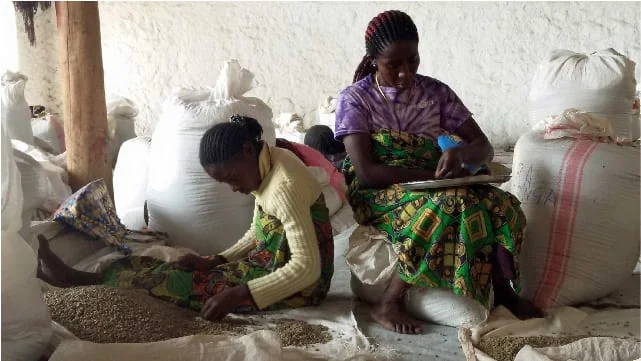On Idjwi Island in Lake Kivu, eastern DR Congo, coffee bushes are yielding a rich harvest that is transforming women’s lives. Traditionally sidelined and underpaid in the sector, women are now becoming the main beneficiaries of an equity-driven initiative.
“Women are the ones who work the land, but when it comes to harvesting and marketing, they get pushed aside — it becomes a man’s business,” said Marcelline Budza, a 33-year-old entrepreneur. “That was what disgusted me.”
The Birth of Rebuild Women’s Hope
In 2014, Budza founded Rebuild Women’s Hope (RWH), an NGO dedicated to empowering women in coffee farming. RWH chose Idjwi, a 300-square-kilometre island famous for its world-class Arabica coffee grown in volcanic soil at high altitude without chemical fertilisers.
“It’s exceptional,” said Daniel Abamungu Cinyabuguma, manager of the Muungano cooperative in Goma.
Overcoming Prejudice and Challenges
For years, coffee production in DR Congo was male-dominated. “Men denigrate the women, saying that coffee growing isn’t for them,” Budza explained. Overcoming cultural prejudice, bureaucracy, taxation issues, and lack of credit took years of struggle.
Now, the effort is paying off. At the peak of harvest, 12,000 women are employed by RWH, working in processing, sorting, and administration. Importantly, they are paid the same as the nearly 900 men on staff.
Changing Lives Through Coffee
The initiative has given women financial independence. “My goals are being achieved. Women can now smile, they can be financially independent,” Budza said.
For women like Rosette Nyakalala Bisengi, 24, the difference is tangible. She earns 2,500 Congolese francs ($1.25) a day, which she admits is modest, but enough to buy livestock, send her children to school, and afford clothing.
Global Reach, Local Empowerment
RWH produces 6 to 10 containers of coffee per harvest, each holding 19 tonnes. The coffee is exported to the United States, Europe, and Asia, generating international recognition.
“We hope to expand and reach 20 containers per harvest, using only local labour,” Budza said, underlining the project’s long-term vision of growth and empowerment.






